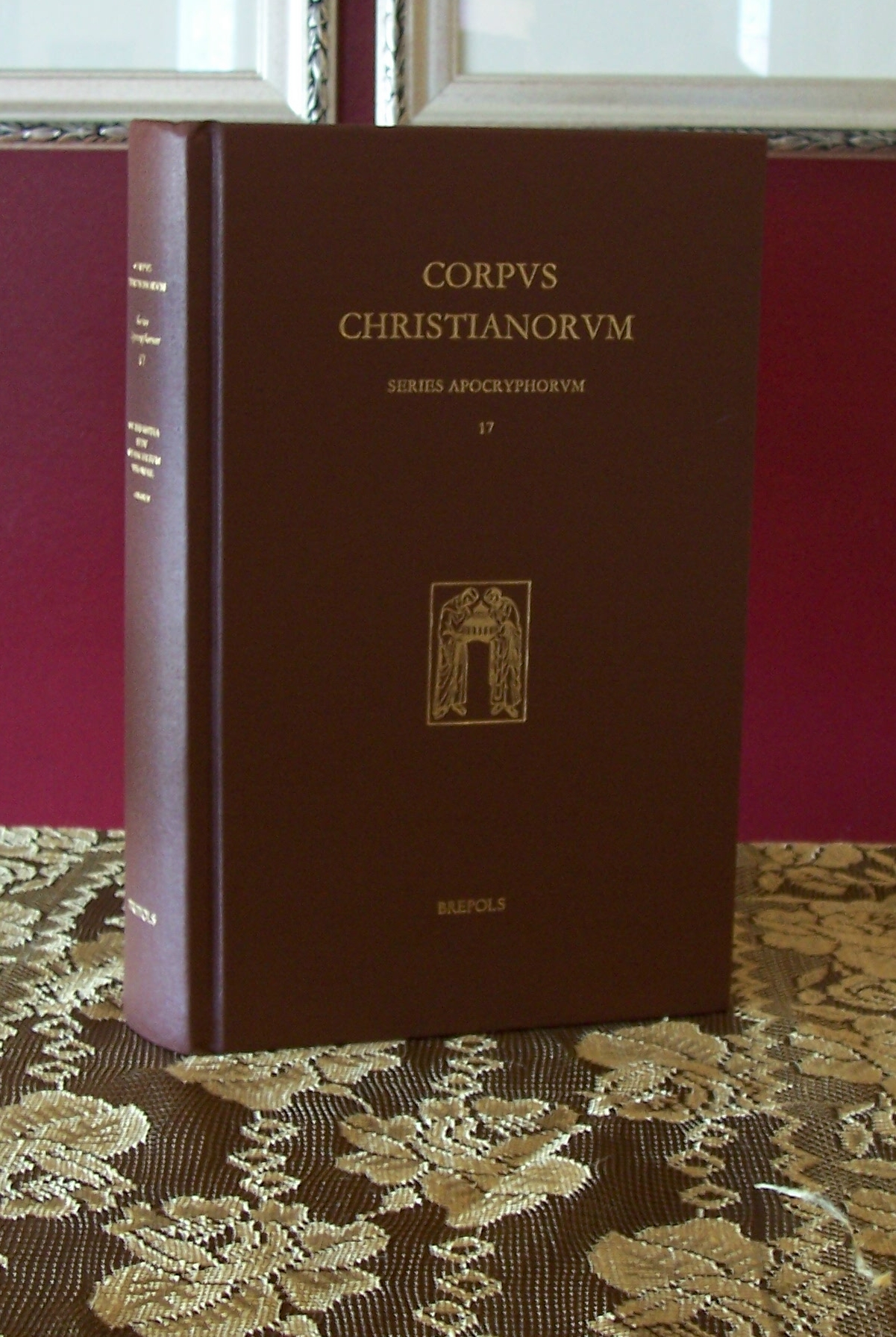CCSA 17: De Infantia Iesu Evangelium Thomae
 My long-awaited (well, at least by me) critical edition of the Greek tradition of the Infancy Gospel of Thomas is now available (and hopefully coming to an academic library near you). Here is the abstract from Brepols' catalogue:
My long-awaited (well, at least by me) critical edition of the Greek tradition of the Infancy Gospel of Thomas is now available (and hopefully coming to an academic library near you). Here is the abstract from Brepols' catalogue:
The Infancy Gospel of Thomas (IGT), an early apocryphal writing about Jesus’ childhood, was first published from a Greek manuscript in the seventeenth century. At the time, and for several centuries thereafter, scholars believed the text to be the “Gospel of Thomas” mentioned by a number of early Church writers and frequently associated with gnostics. With the publication of the true Gospel of Thomas from Nag Hammadi in 1956 interest in the text waned. A few scholars published editions of various versions of the text – including Syriac, Ethiopic, Georgian, Latin, and Slavonic – but study of the Greek tradition stalled, despite indications of the existence of a number of manuscripts that could greatly improve our knowledge of the text. This edition brings together all known published and unpublished Greek manuscripts of IGT, assigns them to four separate recensions (Greek A, B, D, and S), and presents them in Greek and English translation. Attention is also paid to the versions, particularly the Slavonic and Latin traditions, which are shown to be translations of Greek A and Greek D, and therefore help to establish the original form of those recensions. The early versions (Syriac, Ethiopic, Georgian, and another Latin translation) are discussed also as they inform the text of Greek S, an important new recension …
